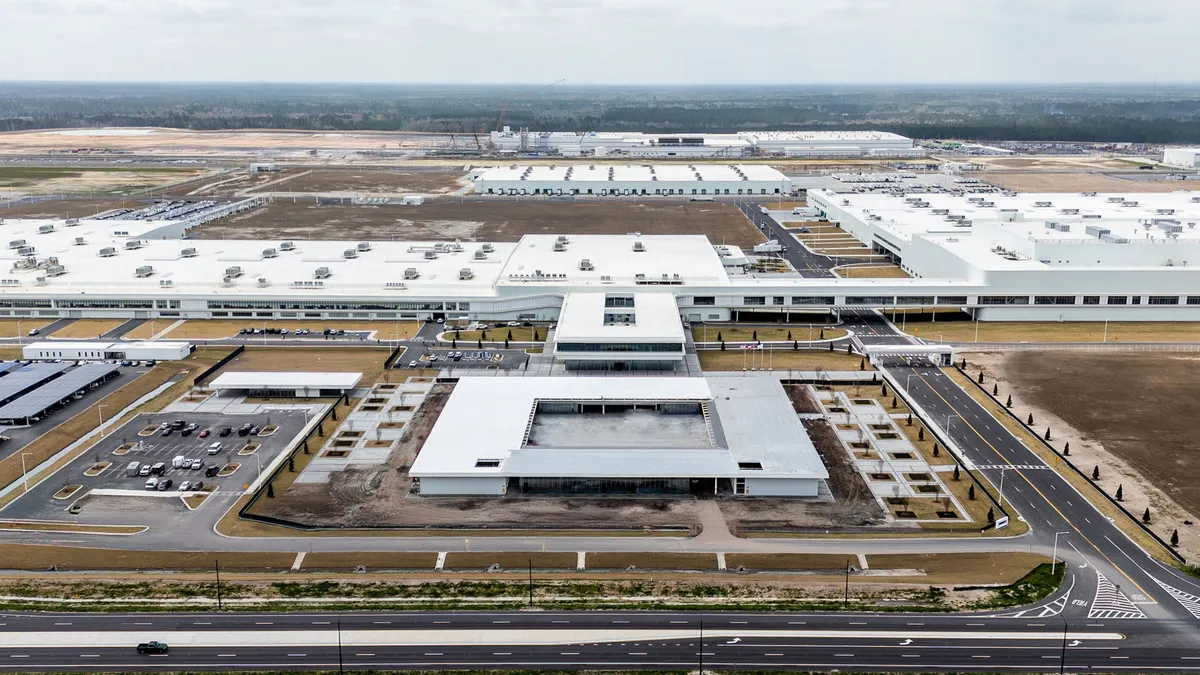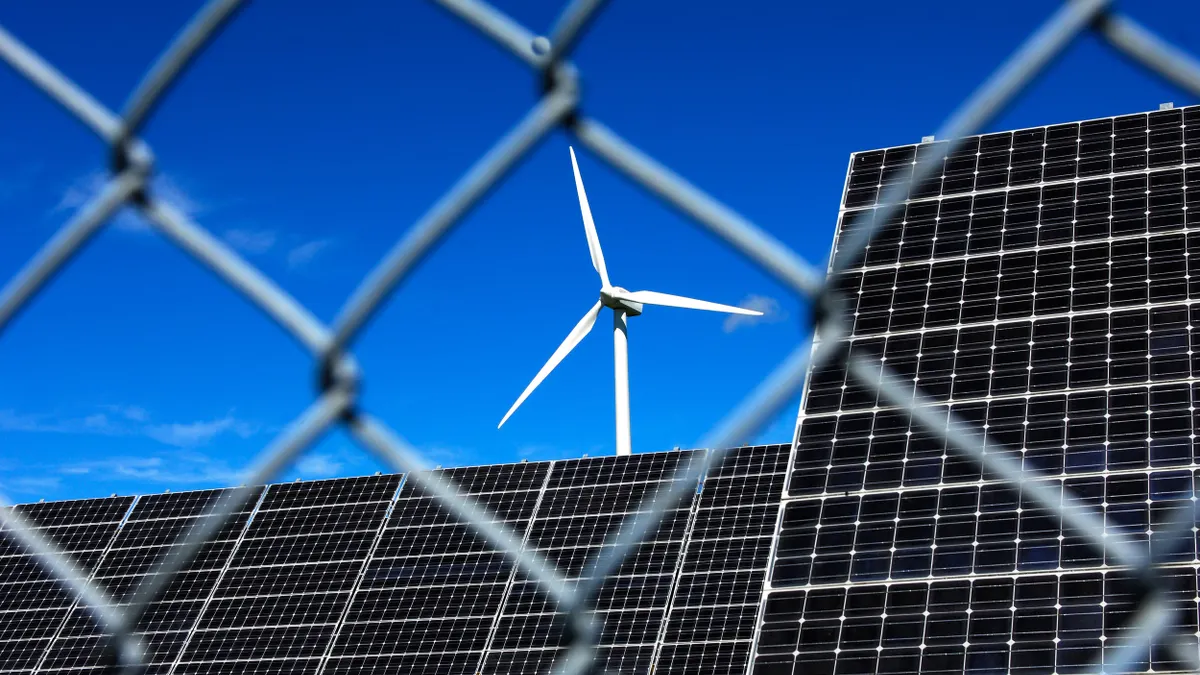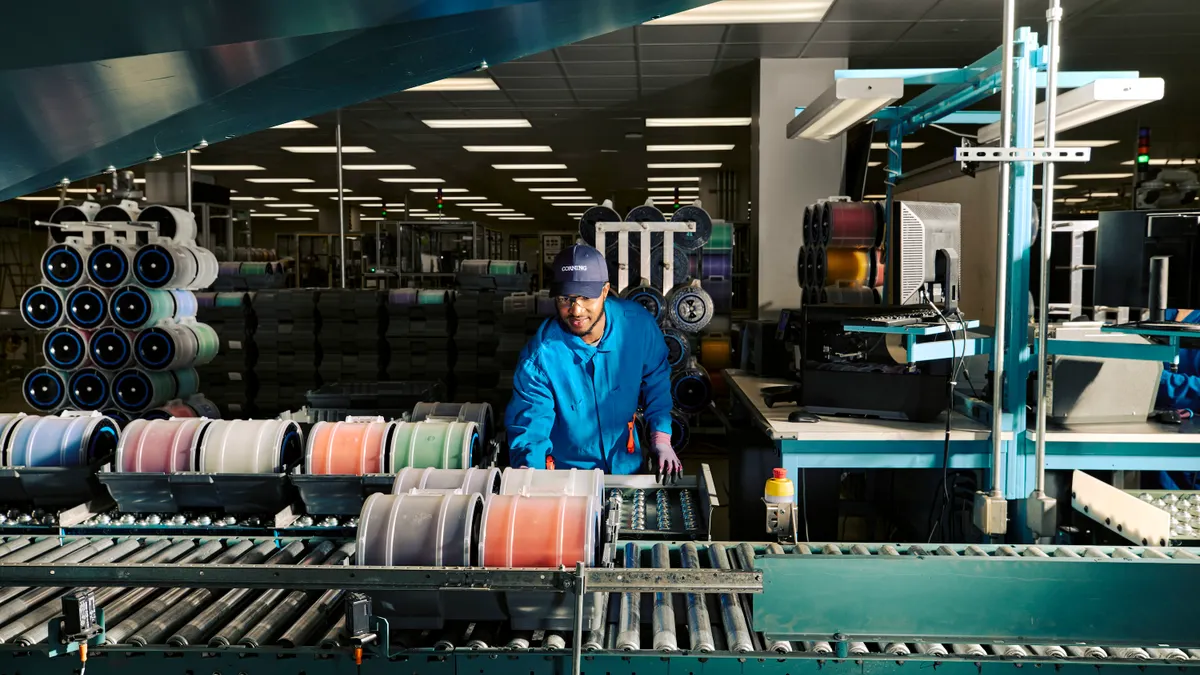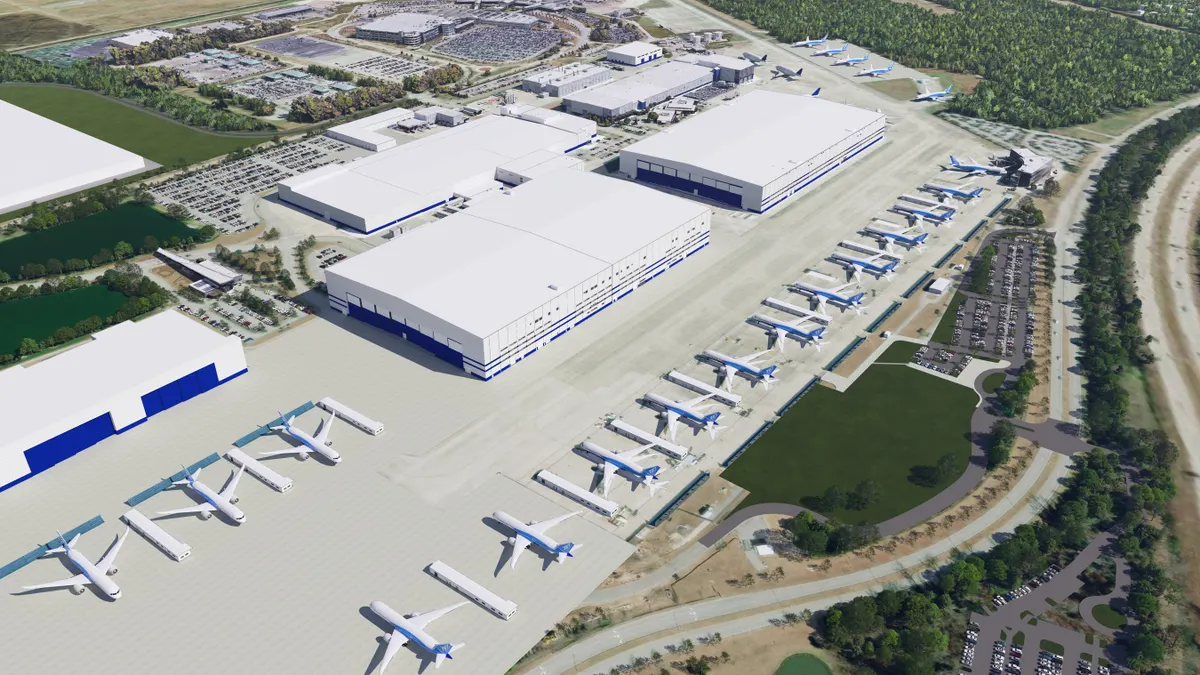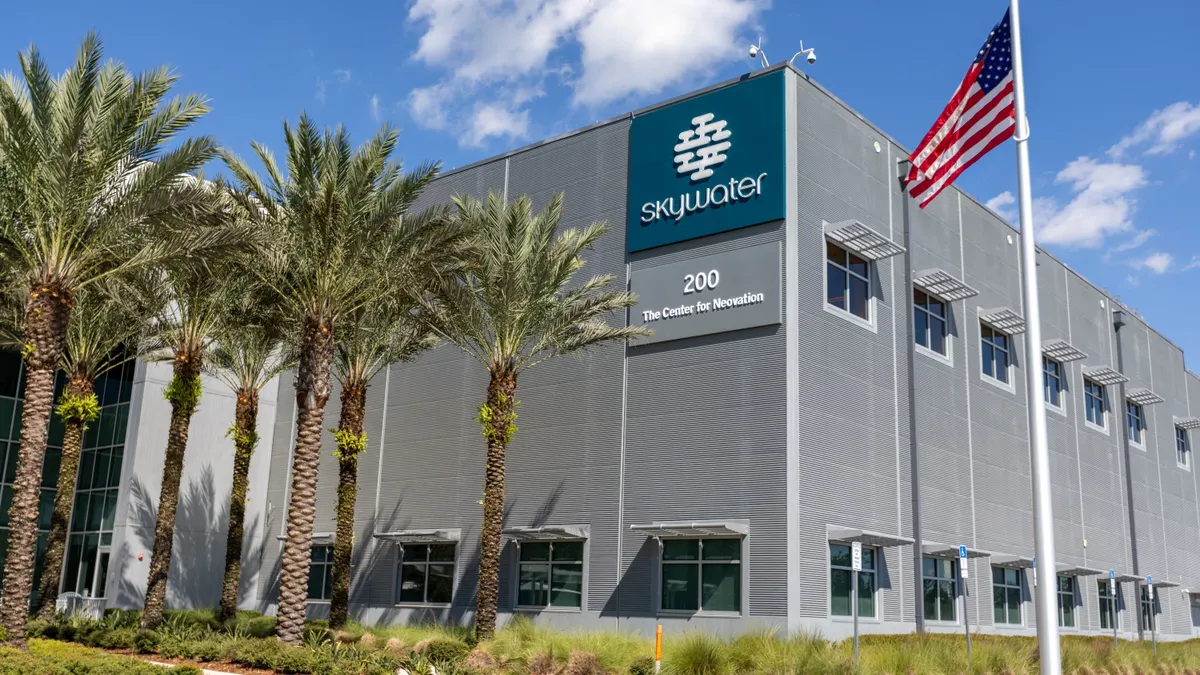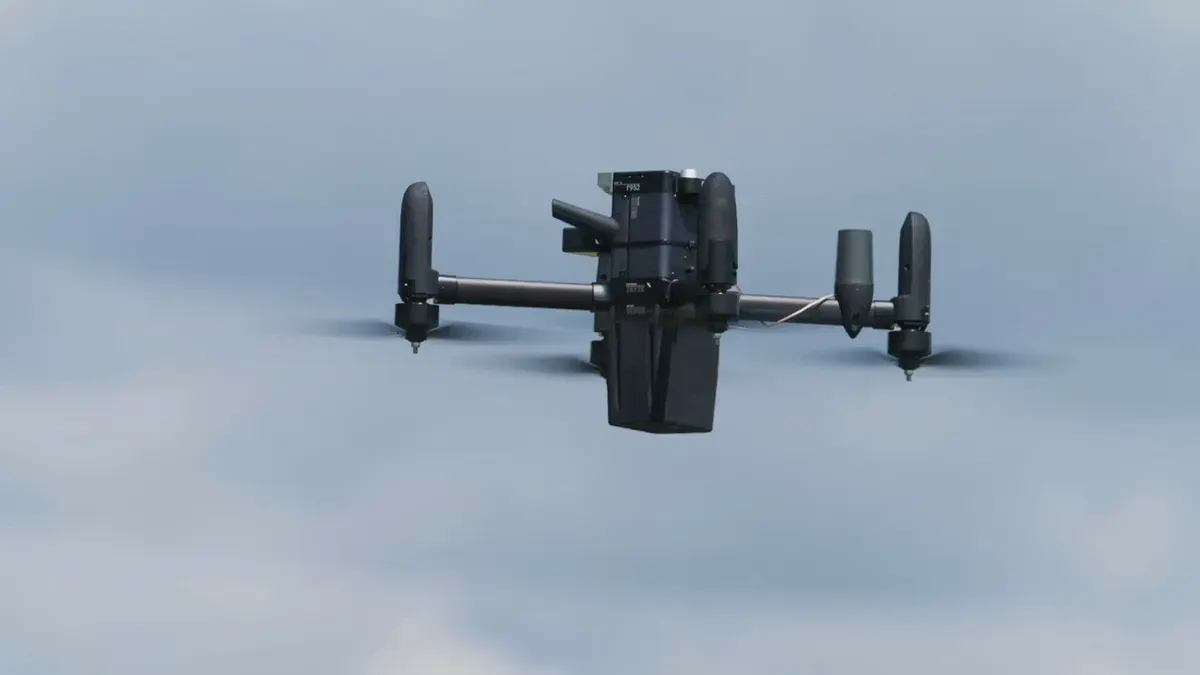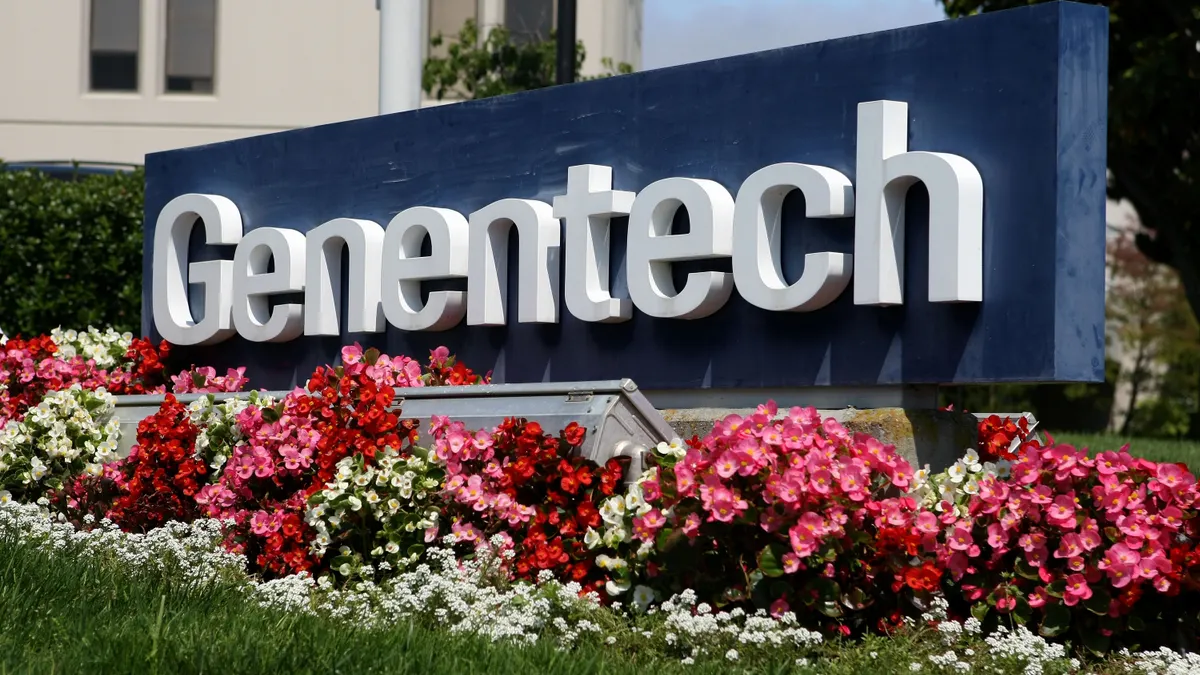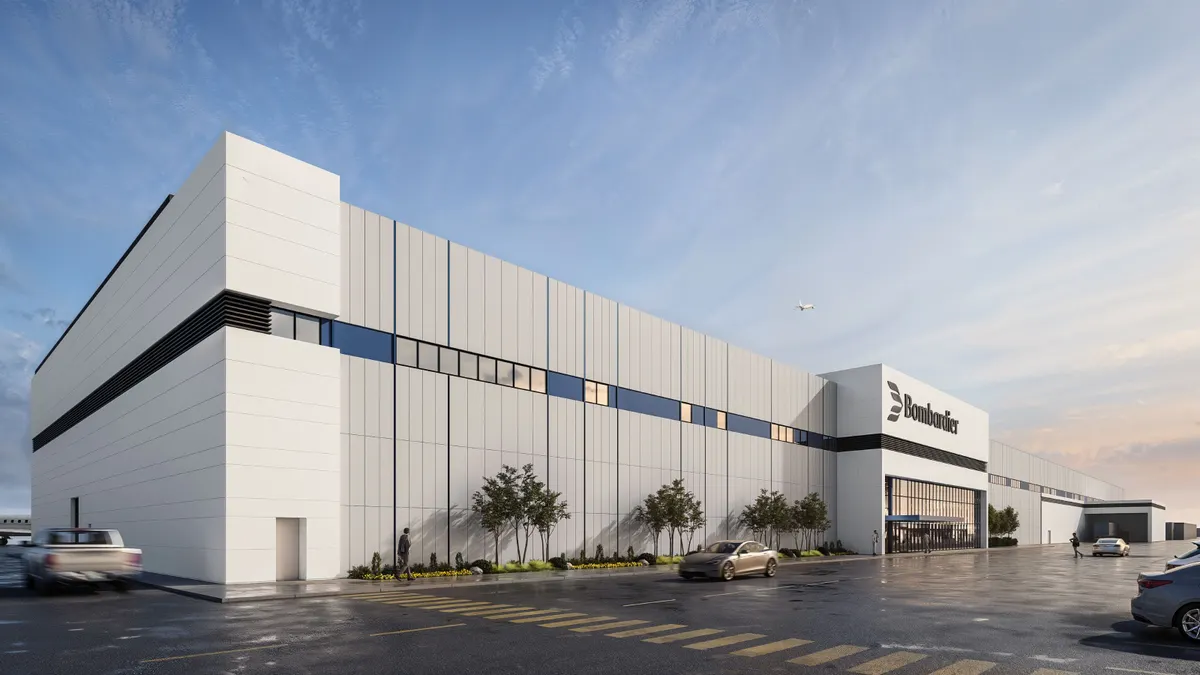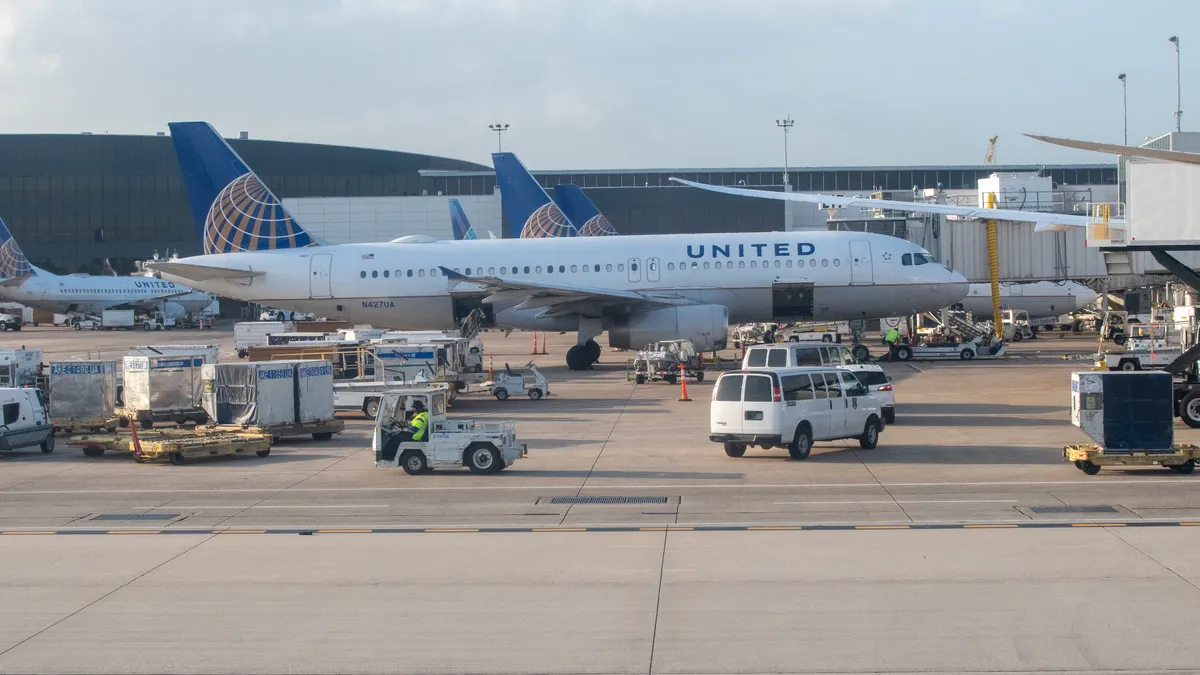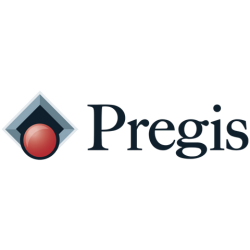Major U.S. manufacturing construction projects are in flux this year.
In the first quarter of 2025 alone, 16 clean energy and electric vehicle manufacturing projects worth $8 billion were canceled, according to environmental group E2. In May, that total grew to $15.5 billion and the loss of 12,000 potential jobs.
The Trump administration has stated it wants to pause the disbursement of grants, loans and tax credits for clean energy projects and shift support to fossil fuels and nuclear power. To this end, the president’s recently passed tax law restricts clean energy credits offered by the Inflation Reduction Act.
Amidst the news of new initiatives being canceled, existing projects at further stages are continuing to completion, expansion and launch.
Here are some of the biggest highlights of manufacturing investments that were announced or put on hold so far in 2025.
AESC
The EV battery cell maker has paused the construction of its $1.6 billion plant in South Carolina. The construction began in 2023 but has now been put on hold due to changes in policy and the resulting market uncertainty, according to a company statement.
AESC said it “fully intends to meet our commitments” and specified that the project hasn’t been canceled. However, no timeline or future plans were revealed.
Bosch
Bosch has halted plans to build a $200 million hydrogen fuel cell production facility in South Carolina. Originally slated for completion by 2026, the project aimed to produce fuel cells for Class 8 trucks and was expected to generate over 350 jobs.
The company attributed this suspension to “significant changes” in the industry and said it would “continue to re-evaluate the investment for local fuel cell manufacturing when regional market demand increases.”
Ford and SK On
BlueOval SK Battery, a joint venture between Ford Motor Co. and SK On, is preparing to begin production in 2025. The $11 billion EV battery production project will construct facilities in Kentucky and Tennessee.
The project received a $9.6 billion U.S. Department of Energy loan late last year, in addition to a $500 million grant from the state of Tennessee.
Freyr Battery/T1 Energy
Freyr, now rebranded as T1 Energy, canceled plans to build a $2.5 billion battery cell manufacturing plant in Georgia. The facility was slated to have created 700-plus jobs.
The company has now shifted its focus to solar cell manufacturing after acquiring Trina Solar’s 5-gigawatt solar module manufacturing facility and moving its global headquarters closer to this site.
In addition, T1 has announced a new 5-GW solar cell manufacturing facility that’s expected to begin construction in 2025 and production in the first half of 2026. The project is said to create up to 1,800 jobs with an investment of $850 million.
Hyundai
In March, Hyundai officially opened an electric and hybrid vehicle production facility in Georgia. With a $12.6 billion initial investment and commitment of an additional $21 billion investment from 2025 to 2028, it marks the largest economic investment project in the state’s history.
Hyundai announced that the facility has a production capacity of 500,000 vehicles annually and would create 8,500 jobs by 2031.
Intel
Intel has delayed the construction of its $28 billion Ohio One semiconductor production campus, which consists of two plants. The company received $1.5 billion in CHIPS funding for the project, which is expected to create 10,000 jobs.
The campus was supposed to be ready by the end of 2026, but the timeline has now been pushed back to 2030 and 2031 for the two plants, respectively.
JetZero
The aircraft maker is planning to build a $4.7 billion plant in North Carolina. The company aims to begin construction next year, and the first commercial aircraft is expected to be ready by the end of the decade.
The project is expected to create 14,500 jobs, which is the highest number in the state's history.
Kore Power
The company is no longer moving forward with a previously announced $1.2 billion battery cell plant in Arizona. The plant was expected to begin production this year, but now the site has been listed for sale and the founder and CEO has stepped down.
The project was expected to have 6 GWh of initial capacity, eventually rising to 12 GWh, and create 3,000 jobs. However, the company claims it never received funds from an $850 million conditional DOE loan.
Texas Instruments
The semiconductor manufacturer has announced a $60 billion investment in seven fabrication plants across Texas and Utah. One of the Texas sites has received $40 billion for four fabs one of which is slated to begin production this year.
Once ready, all the fabs combined are expected to produce hundreds of millions of chips daily for leading companies like Apple, Ford and Nvidia. The overall project is also slated to create 60,000 new jobs.
TSMC
Late last year, TSMC began high-volume semiconductor production at its first Arizona fab. This year, the company finished construction of the second fab and is expected to begin operations by 2028. Work has also begun on the third fab, which is slated to be ready by 2030.
The company also announced an additional $100 billion investment with “three new fabrication plants, two advanced packaging facilities, and a major R&D team center.” This brings the company’s total planned investment in the region to $165 billion so far.
All of these projects combined are expected to create 40,000 construction jobs, with many more tech roles in the future.

